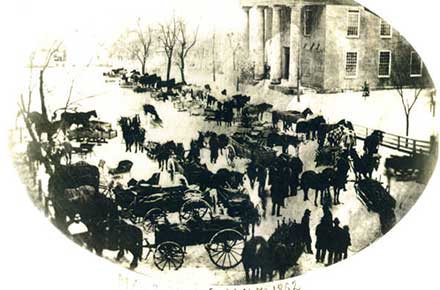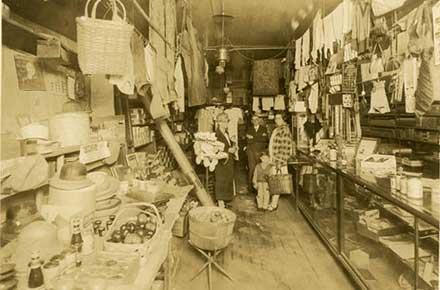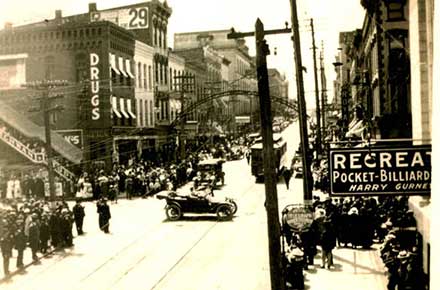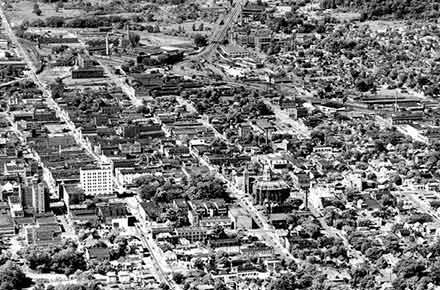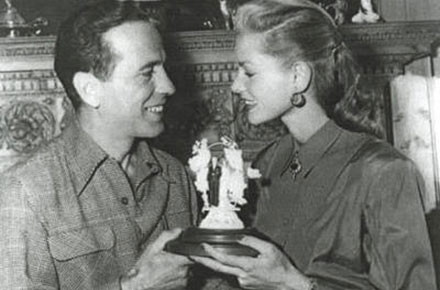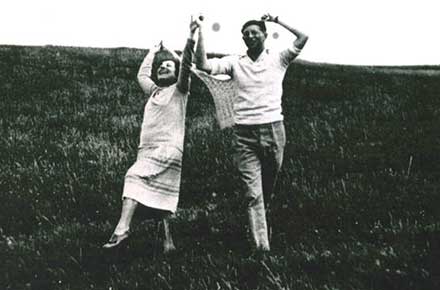Mansfield/Richland County Public Library Collection
Located some 70 miles southwest of Cleveland, the area now known as Richland County was, 200 years ago, the western edge of the Ohio frontier. The first settlers named their settlement after Jared Mansfield, a government surveyor of the Northwest Territories. Eventually, the Delaware Indians that inhabited the area were pushed westward with the vacuum filled by farms and villages.
In 1846, a railroad line connecting Mansfield with the lake shore at Sandusky began operation. With the railroad, came industry. With the industry, came wave after wave of immigrants. Germans, followed by Irish, eastern Europeans, Italians and, from the American south, African-Americans, all looking for their own piece of the American dream.
Mansfield became a center for the manufacture of steel, agricultural implements, stoves and later for washers, dryers, toasters and all manner of electrical appliances. As industries grew, the town grew. In the 1950’s General Motors opened a stamping plant in nearby Ontario. It was the crown jewel in the area’s industrial development.
But as time passed, older factories like Westinghouse, Ohio Brass and Tappan were replaced by newer facilities in the American south or overseas. General Motors finally shut down in 2010, one of the last of the factories that had transformed Mansfield into an industrial powerhouse. But Mansfield is not without energy or hope. It is a city both proud of its past and confident of its future.
Websites of Interest
- Welcome to the City of Mansfield Ohio (Mansfield's official website)
- Google Map of Mansfield
- Mansfield/Richland County Public Library
- Richland County Ohio USGenWeb Project
- The Mansfield Memorial Museum
Acknowledgements
The project was a collaborative effort by Mansfield/Richland County Public Library staff members MaryAnne DiAlesandro, Boyd Addlesperger and Shannin Bailey with the assistance of many. Thanks to Bill Barrow, Joanne Cornelius and the staff at the Michael Schwartz Library at Cleveland State University for their outstanding help and encouragement with this project.
Thanks also to Tony Chinni and Deanna West-Torrence, head of NECIC) and the staff at the North End Community Collaborative for their outstanding work on the Oral History Project.

